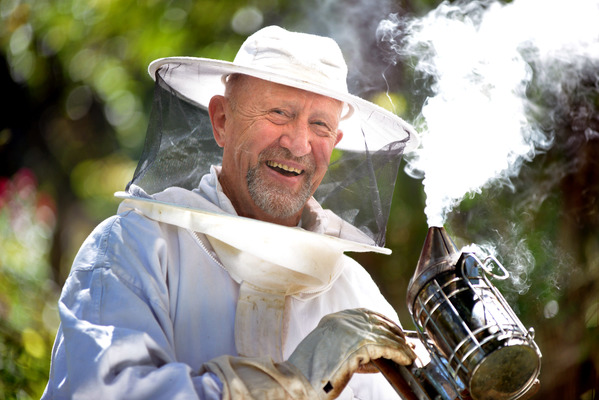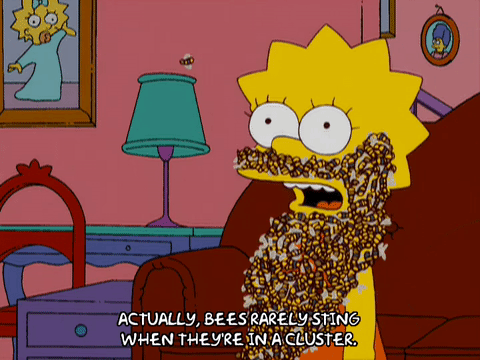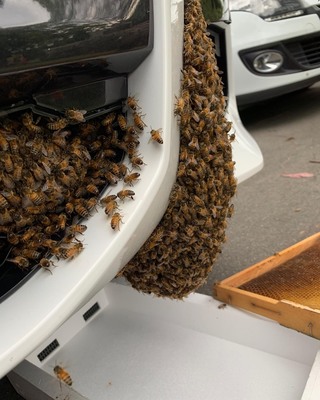Bees. Can’t live with them, can’t live without them.
It seems that in spring, even more noteworthy then angry magpies swooping careless and innocent children is the recent surge in large swarms of bees deciding to settle down in houses, cars and basically any stationary object that is left alone for an hour or two.
In the past few weeks, we’ve had bees on cars at Healesville Hospital, bees in houses in Monbulk and folks, it doesn’t look like it’s going to stop anytime soon.
Now, while bees might be absolutely vital to the continuation of our global ecosystem, nobody wants thousands of stingy bois swarming directly outside your car or inside your house.
So, here at the Mail, we put our investigative journalist hats on and took a deep dive into why bees decide to glaze themselves onto things without warning. To the Bee-mobile!
The mail spoke to Macclesfield resident and Emerald Regional Beekeepers Association member Greg Huggins about this strange phenomenon.
“Swarming is just a natural reproductive cycle of the bees at this time of the year,” he told the Mail.
“Over winter they’re quiet and then as it gets warmer the queen starts laying profusely so the number of bees suddenly increases, and suddenly a two bedroom house with two kids becomes a two bedroom house with four kids and it becomes overcrowded in the hive so half of them more or less leave with the old queen.”
“The swarm is basically just bees in transit who have left the original hive clump together for safety and are scouting out new homes.”
“They will hang in a shrub or tree fern or a car as a transit point, while the scout bees are out looking for a new home.”
Already Mr Huggins has removed three swarms from trees and shrubs located close to homes.
In Healesville the Mail reported on a swarm of around 4500 bees that had chosen to relocate onto a nurses car.
Mr Huggins said that in most instances, removing a swarm is relatively easy, and that swarms were generally quite docile.
“Generally speaking bees in a swarm are not aggressive, they’re usually quite passive.”
“Bees are only aggressive when they are defending a hive. If you’re in transit you don’t have a home to defend and all you’re doing is waiting peacefully for the scouts to find a new home.”
He said that if you locate a swarm, it was important to keep a safe distance and contact a professional beekeeper if close to a house or people.
“Step one is to just leave them alone and keep your children and pets at a respectful distance … if they are close to the house or people leave them alone and call us and we’ll make every effort to remove them and rehome them in a snug and cosy hive.”
The Emerald Regional Beekeepers group covers areas from Upwey to Beaconsfield, and Gembrook to Mount Evelyn. To contact them call 0491 715 840.


















